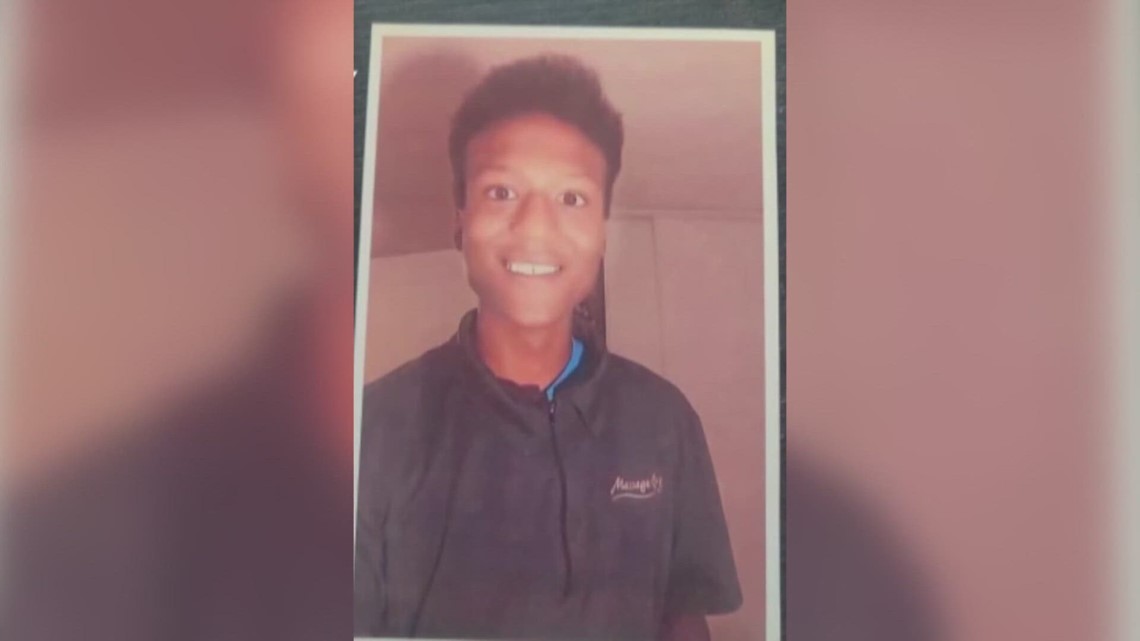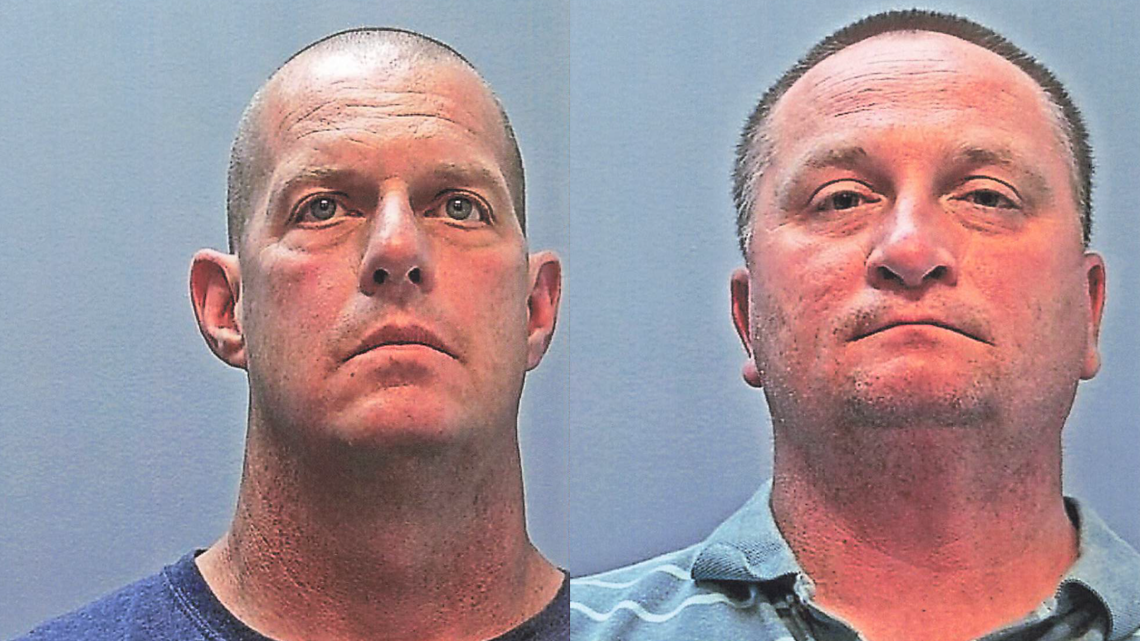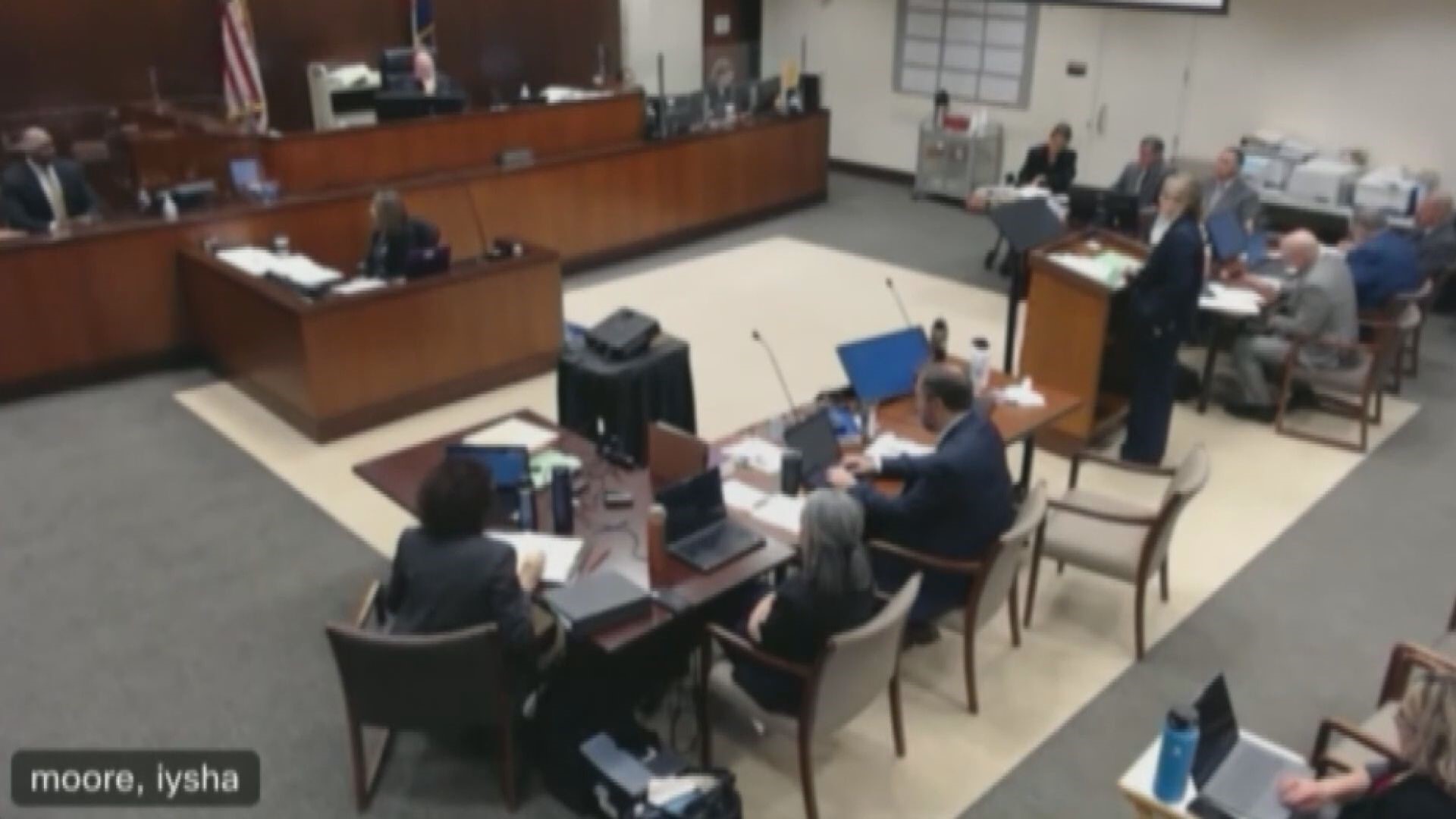AURORA, Colo. — An anesthesiologist, who was the lone witness to testify Tuesday in the trial of two paramedics charged in the 2019 death of Elijah McClain, told jurors that he believed the ketamine that paramedics injected McClain with caused "serious bodily injuries" and was not medically necessary.
Aurora Fire Rescue paramedics Jeremy Cooper and Peter Cichuniec are each charged with reckless manslaughter and multiple counts of assault. They injected McClain with the sedative ketamine on Aug. 24, 2019, after McClain had struggled with Aurora officers. His heart stopped, and he later died.
On Tuesday, Dr. Damon Robinson spent just over three hours on the witness stand. He told jurors he reviewed medical records, autopsy reports, written reports from paramedics and reviewed body-worn camera footage as part of his work on the case.
He explained that higher doses of the sedative come with increased risks and that respiratory depression is a common side effect, which is highlighted in the packet of information that comes with the drug.
According to Robinson, McClain got a dose of 7.69 milligrams per kilogram.
"It's a high dose that's an overdose of the EMS protocol for Aurora, and it's a general anesthetic dose of ketamine," Robinson said about the amount McClain was given.
"At that dose, how would it affect the respiratory depression of Mr. McClain?" asked prosecutor Ann Joyce.
"It has the potential to cause respiratory depression, especially in the setting of hypoxia [lack of oxygen], and potential prior aspiration [inhalation of liquid into the lungs]," he said.


Robinson, like several other medical experts who testified, said that he believed McClain needed care before he was given the sedative. He pointed to the struggle with officers before paramedics arrived. During it, McClain was put in a carotid hold, which cut off oxygen to his brain, causing him to briefly lose consciousness. There was also evidence he had vomited and repeated several times that he could not breathe.
Despite that, Robinson said, that in all of the video footage he reviewed, he did not see anyone from Aurora Fire Rescue do a "direct assessment" of McClain before the sedative was given. Instead, he said it appeared the paramedics relied on reports from officers and did not confirm information on their own.
Those reports from officers included comments that McClain was "definitely on something," that he was "crazy strong" and had almost done a pushup with several officers on his back.


As a result, the paramedics concluded McClain was suffering from "excited delirium" – a medical condition, to believers, that is dangerous and marked by superhuman strength, imperviousness to pain, and severe agitation.
Robinson told jurors that the paramedics might have come to a different conclusion, if they had asked McClain a few simple questions.
"I just want to know if they’re [the patient] awake and oriented," he said. "Do they know their name? Do they know where they are? Do they know who the president is? Do they know the situation as to what is happening to them? That can tell us if they’re delirious or if they’re not delirious."
When asked by Joyce, if he came to a conclusion, based on his expertise, whether McClain was suffering from excited delirium, Robinson responded "that he was not suffering from excited delirium."
Instead, Robinson attributed McClain's behavior to the earlier struggle with officers and said giving McClain the sedative in the condition he was in was "extremely high risk."
"If you deplete adrenaline through exertion – and in this case, I compare it to running 800 meters or doing MMA – if you did that for nine minutes straight, you’d have very little energy, and that’s what he’s demonstrating while he’s on his side," Robinson said.
"That’s important because ketamine has a paradoxical effect, meaning it has the opposite effect of what people would want when it’s administered in a low-adrenaline state," he said. "It actually drops your blood pressure. It drops your pulse. It has a high risk of likely respiratory depression."
Testimony will resume Wednesday morning with what is expected to be the prosecution's last witness.
The paramedics are the last two of the five men indicted in McClain's death to go to trial. In the first trial, a jury returned a split verdict for Aurora officers Randy Roedema and Jason Rosenblatt. Roedema was found guilty of criminally negligent homicide and third-degree assault and will be sentenced in January. That same jury acquitted Rosenblatt of all charges.
A separate jury acquitted Aurora officer Nathan Woodyard. Following his acquittal he was eligible to return to Aurora Police, and in late November the city confirmed he elected to reintegrate with the department and was on restricted duty.
SUGGESTED VIDEOS: Elijah McClain death

